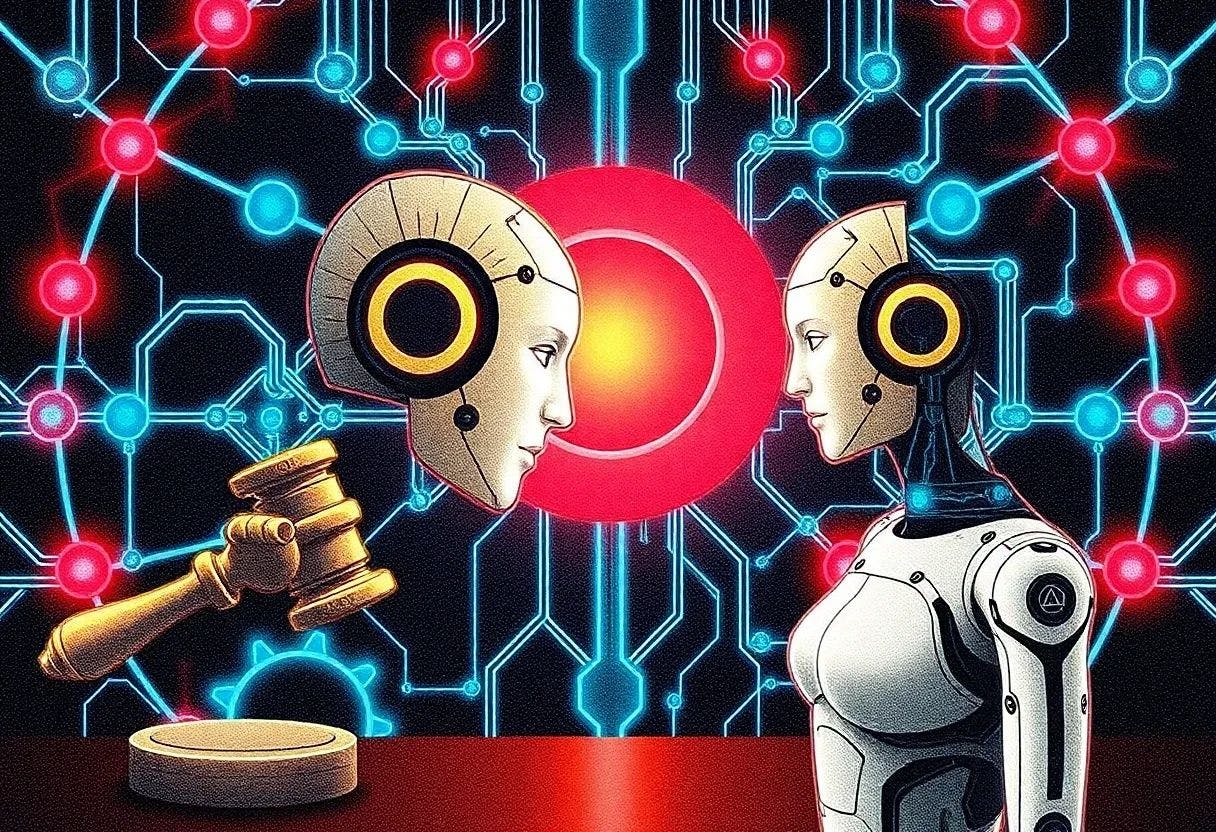As we know, artificial intelligence (AI) is making its presence felt in the world we live in. Artificial intelligence is already making waves with software that claims to simplify tasks like legal research, contract review and even the prediction of case outcomes. But there is one question that many people, including my friend who is doing School to be a lawyer, continue to ask themselves: Will AI ever replace lawyers or judges?
To answer this question, we must understand that judges and lawyers are both legal experts but they do very different work. Enforcing the law is not as simple as recipes. Legal rules are imprecise and sometimes interpreted in infinite ways.
The lawyer's role:
Just a brief overview – it is a quick summary to get you oriented: A lawyer is somewhat more than a human being who's an expert on the law. Their real job is to understand what their client requires, help them choose the best solution and defend their interests. All this involves giving advice, negotiating and even pleadings in a court of law.
So AI can help sort through documents or locate legal information but it cannot understand human motives and feelings like an attorney. That is the real value added by an attorney: their judgment, their ability to read between the lines and diffuse sometimes quite tense situations.
The judge's role:
Just a brief overview – it is a quick summary to get you oriented: The judge does not apply the law by rote. Every case is different and they have to interpret the law in light of the facts.
So AI can help sort through cases or suggest legal precedents but when it comes to the really important decisions – accepting or rejecting evidence, or discerning someone's intent – human judgment gets the final say.
AI can read numbers or facts but they have no idea how someone feels about a thing or what narrative is lying behind every case. A judge, though, has to take all of that into account in order to make a fair judgment. It is all well and good for AI to be useful for certain technical tasks but where there are human beings involved, where fact interpretation and emotion come into it, nothing can replace a lawyer or a judge.
Their role is to apply the law with compassion and with judgment, something which no machine can ever do.
Where AI can help but not replace
It's essential to realize that AI will most likely have an increasing role to play in helping lawyers and judges, rather than replacing them. Imagine a system where a judge could use AI to quickly scan previous decisions in similar cases or a lawyer could use AI to create a legal document in a shorter time. In these instances, AI does not cut out the human element – it just makes these professionals more efficient.
But the law itself is evolving. While AI can prove such a great asset in so many aspects, the legal world has to deal with an ever-changing environment, defined by social pressures, moral issues and political agendas. AI can analyze data but it cannot always recognize these nuances in the same manner as human beings.
A personal view
When I look at my friend who is studying to become a lawyer, I know that she is concerned with the way AI can affect the profession. After all, the legal profession, like most others, is being opened up to more automation. But I do not believe lawyers, doctors or teachers will ever be replaceable based on their ability to sort out complicated human issues and maintain justice. AI can transform the work of lawyers but will not substitute for their core role of being counselors and defenders of human rights.
So while AI can perfect legal processes, lawyers' and judges' work will never be revolutionized. Our ability to read, understand and enjoy the intricacies of the law is something that no machine, no matter how advanced, can ever replace completely.


